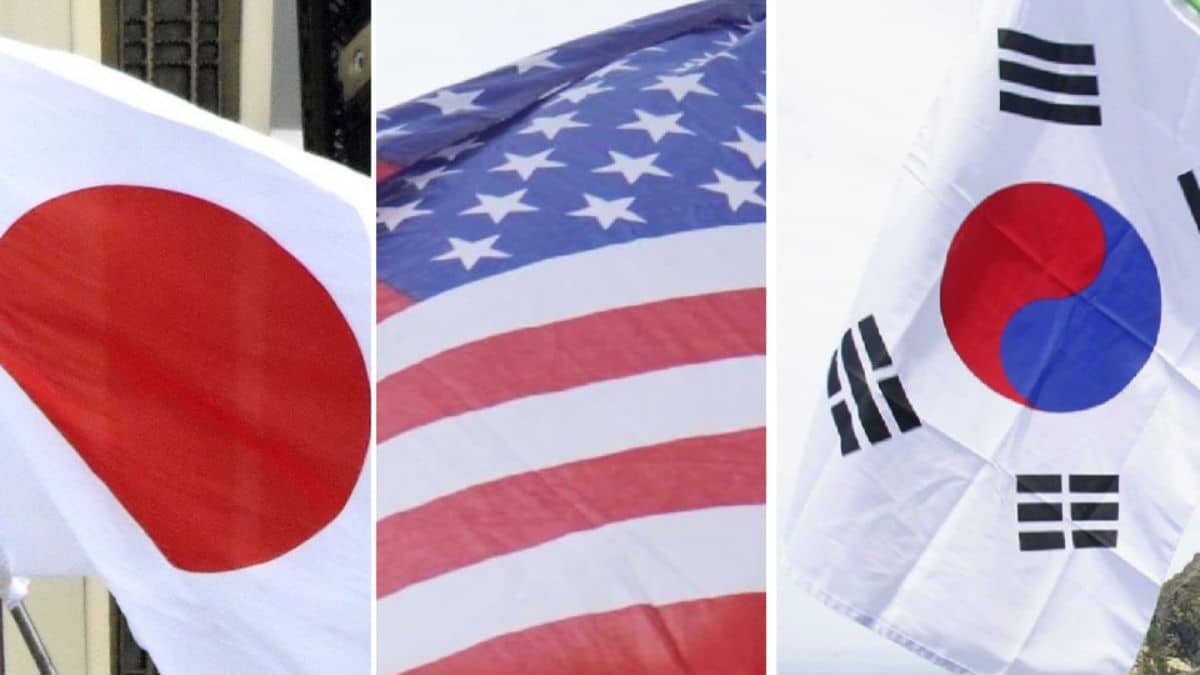South Korea, the United States, and Japan have formalized a groundbreaking trilateral security cooperation framework. The agreement, signed on July 27, 2024, in Seoul, is designed to enhance defence collaboration and address shared security concerns amidst increasing geopolitical tensions in the Asia-Pacific region.
The new framework introduces a comprehensive strategy for bolstering military cooperation among the three nations. It includes provisions for regular high-level meetings between defence officials, the creation of joint task forces for rapid response to crises, and enhanced collaboration on cyber defence. One of the primary goals is to improve interoperability among the armed forces of South Korea, the U.S., and Japan, ensuring a coordinated and effective response to potential threats.
U.S. Secretary of Defense Lloyd Austin, South Korean Defense Minister Lee Jong-sup, and Japanese Defense Minister Yasukazu Hamada, who were present at the signing ceremony, underscored the importance of this partnership. Secretary Austin emphasized that the agreement represents a critical enhancement of trilateral defence ties. “This framework will significantly strengthen our collective defence capabilities and support regional stability,” Austin stated.
The timing of this agreement is notable, coming in the wake of heightened regional tensions. Recent North Korean missile tests and China’s assertive military manoeuvres in the South China Sea have intensified security concerns across the region. By fostering closer military cooperation and strategic alignment, the new framework is expected to bolster deterrence and reassure allies of a united front against these challenges.
Defence analysts suggest that the trilateral agreement will markedly improve strategic coordination among South Korea, the U.S., and Japan. The framework’s emphasis on joint exercises and intelligence sharing is anticipated to enhance the effectiveness of their collective security measures. As the implementation phase begins, the focus will be on operationalizing the framework’s provisions and addressing the evolving security dynamics in the Indo-Pacific region.

